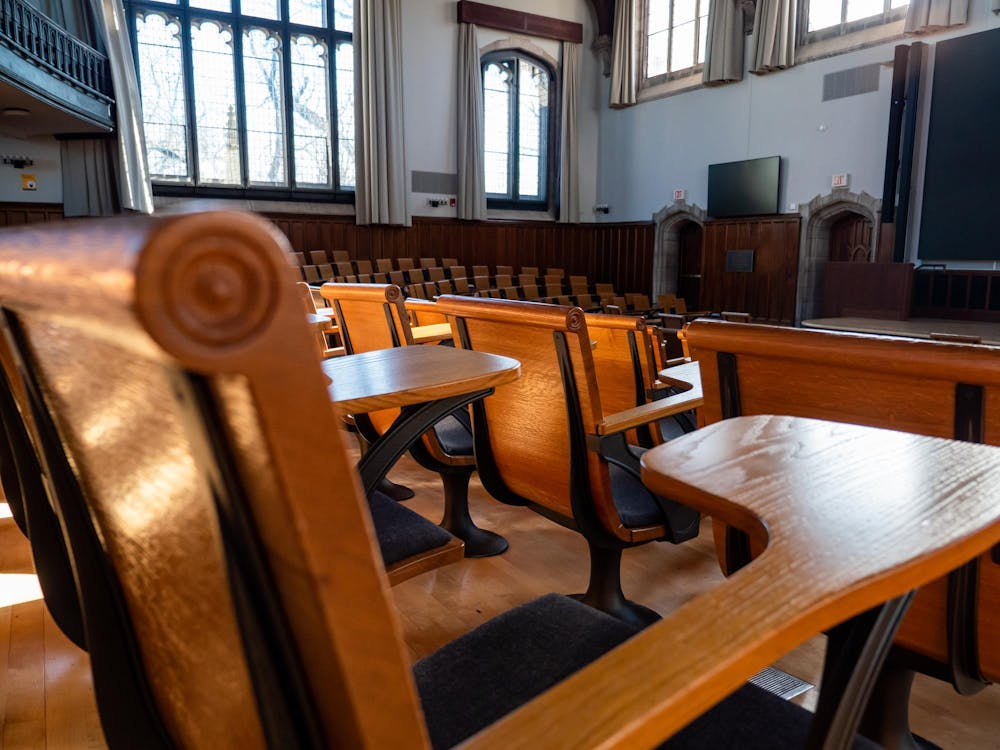At about 1:30 a.m., we both looked at our watches and said, "Whoa" almost simultaneously. As it turned out, we had been talking for three or four hours. It was good talking to you, yadda yadda yadda, and then we both stood up and got ready to leave, feeling woozy the way you do after one of those really involved conversations.
It sounds like we were two friends gabbing over a couple of lattes at Small World, doesn't it? We weren't, though, and we hadn't even met before that night. The person I was talking to was an alum who had worked in the same organization as I did when she was an undergraduate, and it was only the second or third real contact I had had with a Princeton alum. Sure, I was interviewed by an alum during the application process, but although the person who interviewed me was definitely an interesting person and a nice guy, at that point my mind was not exactly focused on socializing.
So up until recently, I had never really had the opportunity to chat with people who have run the Princetonian gauntlet and lived to tell the tale. I was surprised by how easy it was to relate to them, and by the way that they just seemed to convey this impression that more than anyone else, they know exactly what sort of things you're facing. I had never really got the feeling from my parents that my college experience was anything like theirs — my dad went to a medium-sized university in eastern Canada when he was 17 and paid his tuition with the money he made playing poker.
But talking to people who skulked along the same corridors, haunted the same eating clubs and walked the same moonlit streets as I do somehow creates this connection that is difficult to describe. It's easy to think that because someone has supposedly "grown up" and gone out into the world, obtained a real job and owned property that it's impossible to relate to him or her. But it doesn't matter who you are or when you arrive on campus for the first time because it hits you that all of this now belongs to you in some small way. You really do connect with everyone else who came before you.
And before you ask, no, I am not trying to get a job as the guy who writes the application brochure. I think that at the beginning of freshman year, you hear a lot of speeches about making the most of your four years, and at the time it all seems to translate into two simple messages: Go have a social life now before it's too late, and don't flunk out whatever you do. These are two things that most of us knew already.
I also heard from quite a few people that I should experiment with taking different classes. I thought I knew what that meant: "Don't take five politics classes first semester if you want to be a politics major, because it's crazy and your advisor won't let you do it anyway." The classes I have taken so far have been fairly conservative, and I figured that trend would only continue as I got closer to declaring a major because to do anything else was too risky.
That was before this conversation. The person I had this conversation with was a math major at Princeton. When she graduated, she took a variety of different jobs ranging from a position assisting clinicians in a hospital to working in a real estate agent's office, and even went over to the Philippines with the Peace Corps. Now she's doing her dissertation in theology. How can I possibly understand risk-taking if I won't even take a class I feel shaky about?
So the next time you find yourself on a flight back to Princeton and someone introduces himself to you as class of '72, strike up a conversation. There's a long line of people with whom you can discuss more than just orange and black beer jackets. And I'll bet more than a few of them can beat you at Beirut, too. David Morris is from Oakville, Ontario. He can be reached at dmorris@princeton.edu.







